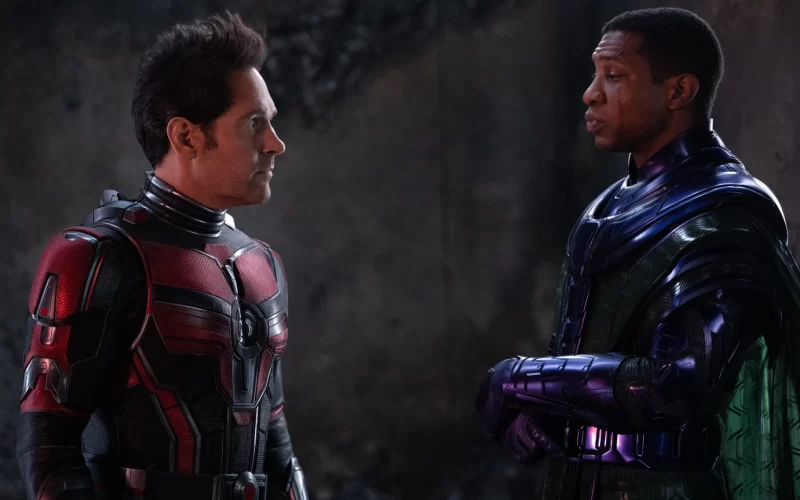Ant-Man and the Wasp: Quantumania
Ant-Man and the Wasp: Quantumania felt like a return to what Marvel does best. That is, I realize, the most backhanded compliment I’ve ever given a film on this blog as what Marvel does best is teasing the next movie. Do I want to see Avengers or Loki or anything with Jonathan Majors in it? You bet. Did even Jonathan Majors’ considerable talents make Quantumania more than passable? Not really.
But passable is passing, so I might as well admit that I enjoyed myself enough to recommend getting off the couch and into the couch seats at the theater. After a mostly lackluster and directionless Phase Four, the MCU appears to be sufficiently distanced from Infinity War to start building on the metanarrative again rather than just issuing self-contained movies with teasers for something that may or may not happen in the next decade.
A lot of the heavy work for the last few years has been done on streaming, but these feel more like venues for introducing more (and minor) characters rather than developing any of the familiar ones. I didn’t anticipate just how much having Paul Rudd around for the whole movie would help. Scott Lang appears to have stepped into the Hawkeye role of “I’m just a normal guy among people with actual superpowers” and he conveys that sense of vulnerability better than Jeremy Renner ever did. (That’s not a knock on Renner’s acting just an acknowledgment that his screen persona is a bit too brave to play the little guy convincingly. In its best moments, Quantumania works because Scott really does appear to be in over his head — Kang is out of his league.
This means that like a lot of MCU movies this one is strongest in Act II but weakest in Act III. The battles are generic and the solutions are never quite as clever as the setup for the problems. Evangeline Lily gets sidelined through most of the movie — I had to check my notes to make sure this wasn’t called Ant-Man and Stature since it is a father/daughter team-up more than anything else. Michelle Pfeiffer gets separated from the senior crowd of doddering male admirers long enough to provide some expository back story which is, essentially fifty minutes of “there’s something I didn’t tell you.”
The art design was kinda there, the creatures a little too much like rejects from a Star Wars cantina spin-off episode, and the treatment of and resolution of M.O.D.O.K. a bit of a dud. But boy oh boy when Majors flares his nostrils or uses his deep, hushed voice, there is more of a backstory in his pained intonation than we typically get in a perfunctory villain origin story.
Also, maybe I’m reaching, but there strikes me as something profoundly meta and on-point in Scott’s inability to understand what he could possibly do next now that he has helped to literally save the universe. A lot of MCU heroes talk about just wanting to have a quiet life with their loved ones, but Rudd is able to make me believe it in ways I just never did with Iron Man, Captain America, Hawkeye, or Thor. Scott comes across as the hero who perenially has greatness thrust upon him, and I like that element more than I realized.

